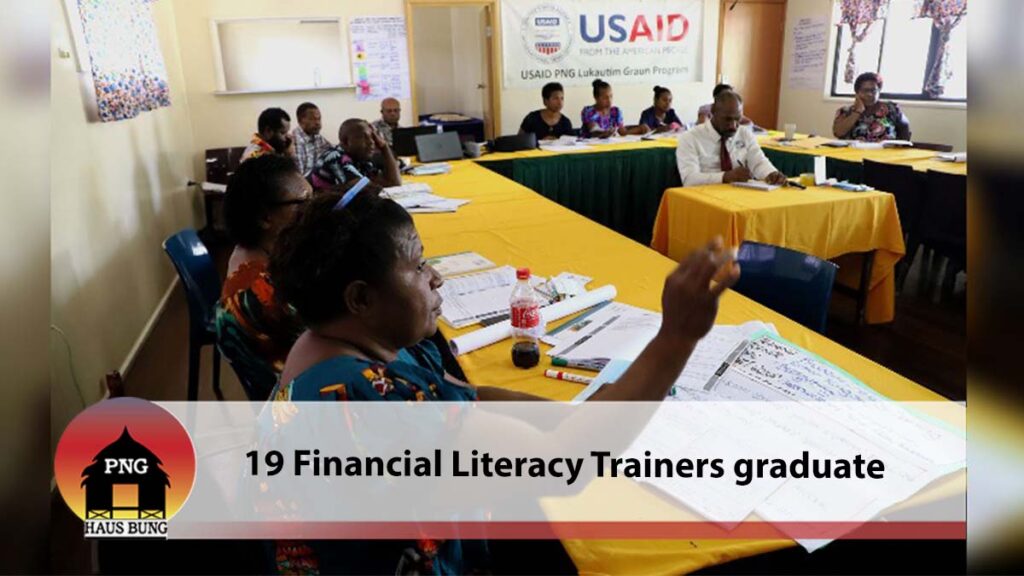The USAID PNG Lukautim Graun Program (LGP) works with the Center for Excellence in Financial Inclusion (CEFI) to increase financial literacy in PNG, particularly rural and remote communities with an emphasis on women.
Working together, CEFI and USAID’s LGP graduated 19 participants as financial literacy trainers on May 13 in Lae, Morobe Province.
The 19 participants became newly certified trainers after completing an intensive five-day financial literacy “training of trainers” (TOT) could delivered by CEFI support of LGP which is funded by the U.S. Agency for International Development (USAID).
Working together, CEFI and LGP already successfully certified 21 trainers in Eastern Highlands, Jiwaka, Morobe, and Simbu provinces and next plan to certify new financial literacy trainers in Milne Bay and Madang provinces.
Expanding the pool of trainers for financial literacy promotes financial inclusion and security for people in rural and remote communities who otherwise cannot access formal financial services or start their own family or community based enterprises.
USAID’s LGP-CEFI partnership focuses on strengthening financial inclusion in remote and rural areas in six provinces in Papua New Guinea (PNG): Eastern Highlands, Jiwaka, Madang, Milne Bay, Morobe, and Simbu.
Through the financial literacy TOT, newly graduated trainers learn the basics of teaching others about saving, budgeting, and online digital finance.
These skills are the foundation for creating new enterprises and increasing household and personal financial security, particularly for women. Importantly, the newly certified trainers deliver the kind of training required to open bank accounts with MiBank PNG, another LGP partner that develops mobile banking services specifically for rural and remote communities.
After completing the financial literacy TOT course, Gregory Tepe said he now has the knowledge and skills to train others in financial literacy.
In his role as a MiBank representative, as a newly qualified financial literacy trainer he is able to better serve both MiBank and MiBank customers and people in his community. “The most exciting thing for me is that this financial literacy training helps us include those who are now financially excluded!” said Mr. Tepe.
Newly certified trainer Fredah Wele, from Wau-Waria District, said people in her local community make a reasonable living selling alluvial gold but struggle to manage their income to meet family household needs.
“The cash flow is there, but they don’t know how to manage money. Now, I can help people in my community better understand how to manage money, so they have enough to pay for things like school fees and health costs,”, she explained.
USAID’s LGP will provide financial literacy training to at least 1000 entrepreneurs, family business representatives, and women in PNG to help these people fully participate in the formal economy and access financial services like banking and small-scale village savings and loan schemes.
A key aspect of LGP’s partnership with CEFI is that in return for the opportunity to become a certified trainer, each trainer commits to training at least 50 other individuals in their respective communities.
Developed by USAID’s LGP, this cascading approach is expected to provide financial literacy training to at least 7,500 individuals in the coming months.
Led by Cardno International Development, LGP works in partnership with PNG governments, a range of implementing partners, the private sector, faith-based organizations, and civil society organizations.
USAID and its implementing partners are empowering people in rural communities to access economic opportunities that improve their livelihood prospects, thus reducing pressure on forest resources and helping protect PNG’s rich biodiversity for future generations.

